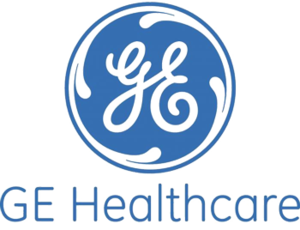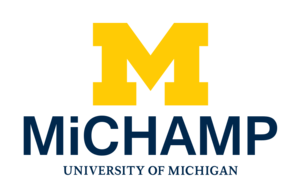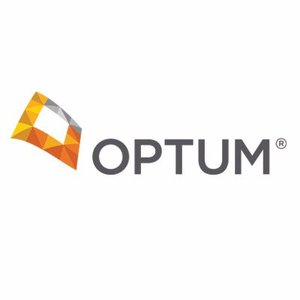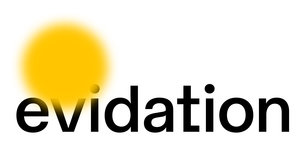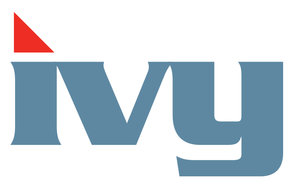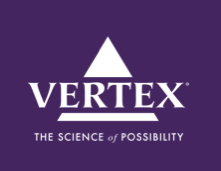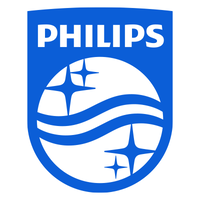Machine Learning for Healthcare 2019
University of Michigan, Ann Arbor, MI August 8-10, 2019
Recordings of talks can be found here - https://tinyurl.com/MLHC2019-talks
2019 Workshop - Community Data Challenge
Thursday August 8th, 2019, University of Michigan North Quadrangle Dining Hall (105 S State St, Ann Arbor MI)
_______________________________________________________________________________
-----Session A -----
10:00am-12:00pm Learn. Introduction to the datasets and Google Cloud Platform (GCP)
What are the data? Where did they come from?
10:00 - 10:10 - Welcome - Brahmajee Nallamothu, MD & Jenna Wiens, PhD
10:10 - 10:30 - Responsible Use of Data - Erin Kaleba, Director, Data Office for Clinical and Translational Research, UM
10:30 - 10:50 - Introduction to the UM-MGI Dataset, Michael Sjoding, MD Assistant Professor of Pulmonary and Critical Care, UM
10:50 - 11:10 - Introduction to Philips Dataset, Omar Badawi, PharmD, MPH, Philips Healthcare
11:10 - 11:30 - Enabling reproducible research with PhysioNet, Tom Pollard, PhD, MIT
11:30 - 11:50 - Intro to GCP
11:50- 13:15 Lunch & Connect. Team Formation
-----Session B -----
13:15 - 14:15 Explore. Hands-on worksheet/tutorial exploring the data within GCP.
13:15 - 13:45 - MGI - Hands-on worksheet, John Vandervest, MS, UM and Shengpu Tang, UM
13:45 - 14:15 - Philips- Hands-on worksheet, Tom Pollard, Alistair Johnson, & Omar Badawi
14:15 - 16:00 Collaborate. Discuss opportunities with teammates.
Working in interdisciplinary teams articulate a technically interesting,
clinically relevant problem that could be solved using these data.
16:00 - 17:00 Pitch. Each team will present their problem to a panel of judge.
17:00 - 17:30 GCP Prizes & Closing Remarks.
Details: With an effort to engage interdisciplinary teams and accelerate research in precision health, we will introduce two datasets at this event i) the clinical data from the Michigan Genomics Initiative Cohort and ii) the Philips eICU dataset. These datasets will be hosted through Google Cloud Platform (GCP). Working in interdisciplinary teams, researchers will explore the data in GCP which has been tailored to working with health data. Once familiar with the dataset, teams will formulate technically interesting AND clinically relevant problems that can be solved using the data. Teams are invited to then pitch their ideas to a panel of experts. To encourage teams to continue working together to answer their research questions, winning teams will receive up to $1,000 in Google Cloud Platform credits (sponsored by Google).
2019 Main Conference Agenda
Friday August 9, 2019, University of Michigan Rackham Graduate School (915 E Washington St, Ann Arbor MI)
_______________________________________________________________________________
8:00- 8:45 Breakfast & Check-in
8:45 - 9:00 Welcoming Remarks
-----Session 1 -----
9:00- 9:45 Noémie Elhadad, PhD, Associate Professor in Biomedical Informatics and Computer Science, Columbia University
Data-Powered Women's Health: Endometriosis Characterization and Self-Management
Abstract: Endometriosis is a chronic, inflammatory, and estrogen-dependent condition with a high burden on quality of life, estimated to affect 6-10% of women of reproductive age worldwide. Despite its high prevalence, it is an enigmatic condition: there is currently no cure and no known biomarker or non-invasive diagnostic test for this multifactorial disease. In this talk I will report on ongoing research on two inter-related questions: how to characterize and discover the different ways in which endometriosis presents in individuals, essentially phenotyping the disease, and how to support individuals with self-discovery and management about the disease considering its heterogeneous presentations. I will show the current characterization of endometriosis from clinical data sources and discuss its current limitations, specifically the disconnect with the day-to-day patient experience of endometriosis. I will present the design and development of a personal health informatics solution (a research app called Phendo) and the analysis of the data contributed by Phendo participants towards phenotyping endometriosis. Finally, I will discuss how these data can be leveraged further to support individuals in learning about and self-managing their condition, as well as facilitating shared decision making with their providers.
9:45 - 10:15 - Contributed Spotlights - Research Paper Track
10:15 - 10:45 Coffee Break and Discussion
10:45-11:30 Andrew Rosenberg, MD, Chief Information Officer for Michigan Medicine, University of Michigan
Supporting Advanced Analytics at Michigan Medicine: Experiences and Lessons Implementing Novel Data and Information Solutions at UM
Abstract: The CIO for the University of Michigan Health System and Medical School will discuss trends in a variety of analytic techniques, and examples where they have been trialed at Michigan Medicine. Often, variable faculty expertise, maturity of the analytic solutions, and quality of source data initially yield suboptimal results for attempting to trial novel analytic techniques at the scale of a modern health system. However, several reproducible approaches to solving complex analytic questions have been established and will be discussed in the context of specific examples at the University of Michigan. Among these include broad knowledge of the data sources, repositories and analytic user groups where expertise reside, competing requests that are harmonized with each other, and core IT/IS support combined with more unique knowledge and innovative approaches from faculty. We will discuss several examples deploying a variety of machine learning approaches, use of enterprise applications’ advanced analytics capabilities such as Epic Cognitive Computing etc. We will also highlight how these have been performed in light of expanding cyber-security and information assurance rigor across the health system, medical school and university.
11:30 - 12:00 - Contributed Spotlights - Research Paper Track
12:00-14:00 Posters A & Lunch
-----Session 2 -----
14:00-14:45 Pilar N Ossorio, PhD, JD, Professor of Law and Bioethics, Law School, University of Wisconsin
Justice in Machine Learning for Health Care
Abstract: Understanding when an inequality in health or health care reflects injustice is more difficult than understanding injustice in areas such as hiring or school admissions. For instance, if fairness means treating people alike to the extent their relevant characteristics are the same, then we need to agree on what characteristics are relevant. In hiring decisions, we might say that it is unfair to treat people with the same or similar job qualifications differently based on their race, because qualifications are relevant and race is not. In health and healthcare, we often do not know whether gender, age, class, race, or other characteristics are relevant to people’s diagnoses, treatment responses, prognoses, or health risks. A wealth of data indicates that pernicious stereotypes and social inequalities influence health and health care, and no doubt these social problems will pattern the data on which algorithms are trained. On the other hand, not all gender, class, racial, or other differences in health or health care reflect injustice. This presentation will develop a taxonomy of ways in which health and health care inequalities arise; discuss how and why inequalities count as injustices; and discuss ways in which machine learning could help ameliorate injustice in health care, or contribute to it.
14:45 - 15:15 - Contributed Spotlights - Research Paper Track
15:15 - 15:45 Coffee Break and Discussion
15:45-16:30 Mert Sabuncu, PhD, Assistant Professor, School of Electrical and Computer Engineering, Cornell University
Adaptive Compressed Sensing MRI with End-to-End Deep Learning
Abstract: Magnetic Resonance Imaging (MRI) can be accelerated by sampling below the Nyquist rate. In this talk, I will consider the problem of optimizing the under-sampling pattern in a data-driven fashion. For a given sparsity constraint, our method optimizes the under-sampling pattern and reconstruction model, using an end-to-end learning strategy. Our algorithm learns from full-resolution data that are under-sampled retrospectively. The proposed method, which we call LOUPE (Learning-based Optimization of the Under-sampling PattErn), was implemented by modifying a U-Net, a widely used convolutional neural network architecture, that we append with the forward model that encodes the under-sampling process. Our experiments with brain and knee MRI scans show that the optimized under-sampling pattern can yield significantly more accurate reconstructions compared to standard under-sampling schemes.
16:30 - 17:00 - Contributed Spotlights - Research Paper Track
17:00 - Posters B & Reception
Saturday August 10, 2019
_______________________________________________________________________________
8:30-9:00 Breakfast
-----Session 3 -----
9:00-9:45 Mihaela van der Schaar, PhD, John Humphrey Plummer Professor of ML, AI and Medicine, University of Cambridge
Learning Engines for Healthcare: Transforming Medicine through AI-enabled Healthcare Pathways
Abstract:In this talk, I will discuss recent machine learning and AI theory, methods, algorithms and systems which we developed in our lab to understand the basis of health and disease, to catalyze clinical research, to support clinical decisions through individualized medicine, to inform clinical pathways, to better utilize resources & reduce costs and to inform public health.
To do this, we are creating what I call Learning Engines for Healthcare (LEH’s). An LEH is an integrated ecosystem that uses machine learning, AI and operations research to provide clinical insights and healthcare intelligence to all the stakeholders (patients, clinicians, hospitals, administrators). In contrast to an Electronic Health Record, which provides a static, passive, isolated display of information, an LEH provides dynamic, active, holistic & individualized display of information including alerts.
In this talk, I will focus on 3 steps in the development of LEH’s: 1. Building a comprehensive model that accommodates irregularly sampled, temporally correlated, informatively censored and non-stationary processes in order to understand and predict the longitudinal trajectories of diseases. 2. Establishing the theoretical limits of causal inference and using what has been established to create a new approach that makes it possible to better estimate individualized treatment effects. 3. Using Machine Learning itself to automate the design and construction of entire pipelines of Machine Learning algorithms for risk prediction, screening, diagnosis and prognosis.
9:45-10:15 Contributed Spotlights - Clinical Abstract Track
10:15-10:45 Coffee Break and Discussion
10:45-11:30 Roy Perlis, MD, MSc, Professor of Psychiatry, Harvard University
Controversies in Diagnosis and Treatment of Major Depressive Disorder
Abstract: The impact of major depressive disorder is profound, whether measured in terms of morbidity and mortality, health care costs, or impact on productivity and quality of life. Efforts to improve the diagnosis and treatment of this brain disease have been hindered by a lack of understanding of etiology, overlap with other diseases, and optimal treatment strategies. This presentation will focus on emerging ideas about major depressive disorder as they inform efforts to apply machine learning to improve diagnosis, select optimal treatments, and stratify risk for adverse outcomes, including suicide. More broadly, it will introduce concepts relevant to the use of large clinical data sets where both phenotypes and outcomes may be difficult to reliably characterize.
11:30-12:00 Contributed Spotlights - Clinical Abstract Track
12:00-13:30 Lunch & Clinical Track Posters
-----Session 4 -----
13:30-14:15 Rajan Dewar, MD, PhD, Associate Professor, Michigan Medicine, University of Michigan
ML in Global Health: Can ML Tools Help Implement Cost Effective Healthcare Solutions in Low and Middle Income Countries?
Abstract: Health care delivery in LMICs are impeded by the lack of high quality and more expensive tools that enables precise diagnosis and treatment, which is available and affordable in western countries. We propose that ML tools can help bridge this lack of resources. Pathology infrastructure is necessary for early (screening) diagnosis, appropriate diagnosis and treatment selection of cancer which is increasing in LMICs. Cervical cancer is one of the leading causes of cancer death in women. Screening at early stages using the popular Pap smear test has been demonstrated to reduce fatalities significantly. Cost effective, automated screening methods can significantly improve the adoption of these tests worldwide. Automated screening involves image analysis of cervical cells. Gaussian Mixture Models (GMM) are widely used in image processing for segmentation which is a crucial step in image analysis. In our proposed method, GMM is implemented to segment cell regions to identify cellular features such as nucleus, cytoplasm while addressing shortcomings of existing methods. This method is combined with shape based identification of nucleus to increase the accuracy of nucleus segmentation. This enables the algorithm to accurately trace the cells and nucleus contours from the pap smear images that contain cell clusters. The method also accounts for inconsistent staining, if any. The results that are presented shows that our proposed method performs well even in challenging conditions. Despite this, challenges remain and will be discussed. Other population health ML solutions include - high resolution databases and survey tools that can identify at-risk populations that can help targeted screening.
14:15 - 15:00 Katherine Heller, PhD, Duke University and Google Medical Brain
Machine Learning for Healthcare in Practice
15:00-16:00 Panel Discussion, moderated by David Kale, PhD
Panelists:
Omar Badawi, PharmD, MPH, Philips Healthcare
Luca Foschini, PhD Co-founder Evidation
Katherine Heller, PhD, Google
Sachin Kheterpal, MD, MBA University of Michigan
Pilar N. Ossorio, PhD, JD, University of Wisconsin
16:00-16:15 Closing Remarks
16:30 Feedback Discussion Session
RESEARCH PAPERS
POSTERS A
Spotlight Session #1 - Friday Aug. 9th, 9:45-10:15
Early Recognition of Sepsis with Gaussian Process Temporal Convolutional Networks and Dynamic Time Warping
Michael Moor (MLCB, D-BSSE, ETH Zurich); Max Horn (MLCB, D-BSSE, ETH Zurich); Bastian A Rieck (MLCB, D-BSSE, ETH Zurich); Damian Roqueiro (ETH Zurich); Karsten Borgwardt (ETH)Relaxed Parameter Sharing: Effectively Modeling Time-Varying Relationships in Clinical Time-Series
Jeeheh Oh* (University of Michigan); Jiaxuan Wang* (University of Michigan); Shengpu Tang (University of Michigan); Michael Sjoding (University of Michigan); Jenna Wiens (University of Michigan)*equal contributionFLARe: Forecasting by Learning Anticipated Representations
Surya Teja Devarakonda (UMass Amherst); Joie Yeahuay Wu (UMass Amherst); Yi Ren Fung (UnMass Amherst; Madalina Fiterau (UMass Amherst)Multi-Task Gaussian Processes and Dilated Convolutional Networks for Reconstruction of Reproductive Hormonal Dynamics
Iñigo Urteaga (Columbia University); Tristan Bertin (Columbia University); Theresa Hardy (New York University); David Albers (University of Colorado); Noémie Elhadad (Columbia)*Using Contextual Information to Improve Blood Glucose Prediction
Mohammad Akbari (University College London); Rumi Chunara (New York University)Dynamically Personalized Detection of Hemorrhage
Chirag Nagpal (Carnegie Mellon University); Xinyu Li (Carnegie Mellon University); Michael R. Pinsky (University of Pittsburgh); Artur Dubrawski (CMU)Multiple Instance Learning for ECG Risk Stratification
Divya Shanmugam (MIT); John Guttag (MIT); Davis Blalock (MIT)A Spatiotemporal Approach to Predicting Glaucoma Progression Using a CT-HMM
Supriya Nagesh (Georgia Institute of Technology); Alexander F Moreno (Georgia Institute of Technolog); James Rehg (Georgia Institute of Technology)Temporal Graph Convolutional Networks for Automatic Seizure Detection
Ian Covert (University of Washington); Jiening Zhan (Google); Matthew Shore (Google); Ming Jack Po (Google)Meta-Weighted Gaussian Process Experts for Personalized Forecasting of AD Cognitive Changes
Ognjen Rudovic (MIT); Yuria Utsumi (MIT); Kelly Peterson (MIT); Ricardo Guerrero (Imperial College ); Daniel Rueckert (Imperial College London); Rosalind Picard (MIT)
Spotlight Session #2 - Friday Aug. 9th, 11:35-12:00
Multimodal Machine Learning for Automated ICD Coding
Keyang Xu (Petuum Inc.); Mike Lam (Petuum Inc.); Jingzhi Pang (Petuum Inc.); Xin Gao (Petuum Inc.); Charlotte Band (Petuum Inc.); Piyush Mathur (Cleveland Clinic); Frank Papay (Cleveland Clinic); Ashish Khanna (Cleveland Clinic); Jacek Cywinski (Cleveland Clinic); Kamal Maheshwari ( Cleveland Clinic); Pengtao Xie (Petuum / CMU); Eric Xing (Petuum Inc.)Clinical Question Answering from Electronic Health Records
Bhanu Pratap Singh Rawat (UMass Amherst); Fei Li (UMASS Lowell); Hong Yu (University of Massachusetts)Self-Attention Based Molecule Representation for Predicting Drug-Target Interaction Bonggun Shin (Emory University); Sungsoo Park (Deargen Inc.); Keunsoo Kang (Dankook University); Joyce Ho (Emory University)
Clinically Accurate Chest X-Ray Report Generation
Guanxiong Liu (University of Toronto); Tzu-Ming H Hsu (MIT); Matthew BA McDermott (MIT); Willie Boag (MIT); Wei-Hung Weng (MIT); Pete Szolovits (MIT); Marzyeh Ghassemi (University of Toronto)A Neural Model for Predicting Dementia from Language
Weirui Kong (University of British Columbia); Hyeju Jang (University of British Columbia); Giuseppe Carenini (University of British Columbia); Thalia Field (University of British Columbia)Predicting Sick Patient Volume in a Pediatric Outpatient Setting using Time Series Analysis Grace Guan (Princeton University); Barbara Engelhardt (Princeton University)
Predicting Phase 3 Clinical Trial Results by Modeling Phase 2 Clinical Trial Subject Level Data Using Deep Learning
Youran Qi (University of Wisconsin–Madison); Qi Tang (Sanofi US)Phenotype Inference with Semi-Supervised Mixed Membership Models
Victor A Rodriguez (Columbia University); Adler Perotte (Columbia University)
POSTERS B
Spotlight Session #3 - Friday Aug. 9th, 14:45-15:15
Counterfactual Reasoning for Fair Clinical Risk Prediction
Stephen R Pfohl (Stanford University); Tony Duan (Stanford University); Daisy Yi Ding (Stanford University); Nigam Shah (Stanford)What Clinicians Want: Contextualizing Explainable Machine Learning for Clinical End Use Sana Tonekaboni (University of Toronto, Vector institute, Hospital for Sick children); Shalmali Joshi (Vector Institute); Melissa Mccradden (Hospital for Sick children, Vector institute); Anna Goldenberg (University of Toronto, Hospital for Sick Children)
Feature Robustness in Non-stationary Health Records: Caveats to Deployable Model Performance in Common Clinical Machine Learning Tasks
Bret Nestor (University of Toronto); Matthew BA McDermott (MIT); Willie Boag (MIT); Gabriela Berner (Harvard University); Tristan Naumann (Microsoft Research); Michael C Hughes (Tufts University); Anna Goldenberg (University of Toronto, Hospital for Sick Children); Marzyeh Ghassemi (University of Toronto)“Brilliant” or “Beautiful”? Patient Perceptions of Male versus Female Physicians in Online Reviews
Avijit Thawani (University of Southern California); Michael Paul (UC Boulder); Urmimala Sarkar (UC San Francisco); Byron Wallace (Northeastern University)A calibration metric for risk scores with survival data
Steve Yadlowsky (Stanford University); Sanjay Basu (Stanford University); Lu Tian (Stanford University)ASAC: Active Sensing using Actor-Critic models
Jinsung Yoon (UCLA); James Jordon (University of Oxford); Mihaela van der Schaar (UCLA and University of Cambridge)Using Domain Knowledge to Overcome Latent Variables in Causal Inference from Time Series
Min Zheng (Stevens Institute of Technology); Samantha Kleinberg (Stevens Institute of Technology)The Medical Deconfounder: Assessing Treatment Effect with Electronic Health Records (EHRs)
Linying Zhang (Columbia University); Yixin Wang (Columbia University); Anna Ostropolets (Columbia University); Jami Mulgrave (Columbia University); David Blei (Columbia University); George Hripcsak (Columbia University)EEG2Text: Learning to Write Medical Reports from EEG Recordings
Siddharth Biswal (Georgia Institute of Technology); Cao Xiao (IQVIA); Brandon Westover (Mass General); Jimeng Sun (Georgia Tech)
Spotlight Session #4 - Friday Aug. 9th, 16:30-17:00
Few-Shot Learning for Dermatological Disease Diagnosis
Viraj Prabhu (Georgia Tech); Anitha Kannan (Curai); Murali Ravuri (Curai); Manish Chablani (Curai); David Sontag (MIT); Xavier Amatriain (Curai)Thyroid Cancer Malignancy Prediction From Whole Slide Cytopathology Images
David Dov (Duke University); Shahar Kovalsky (Duke University); Jonathan Cohen (Duke University); Danielle Range (Duke University); Ricardo Henao (Duke University); Lawrence Carin Duke (Duke University)Multi-view Multi-task Learning for Improving Autonomous Mammogram Diagnosis
Trent M Kyono (UCLA); Fiona Gilbert (University of Cambridge); Mihaela van der Schaar (UCLA and University of Cambridge)Enhancing high-content imaging for studying microtubule networks at large-scale
Hao-Chih Lee; Sarah T. Cherng; Riccardo Miotto; Joel T. Dudley (Icahn School of Medicine, Mount Sinai)Simultaneous Measurement Imputation and Outcome Prediction for Achilles Tendon Rupture Rehabilitation
Charles Hamesse (Royal Military Academy, Belgium); Ruibo Tu (KTH Royal Institute of Technology); Paul Ackermann (Karolinska Institutet); Hedvig Kjellström (KTH Royal Institute of Technology); Cheng Zhang (Microsoft)Automated Estimation of Food Type from Body-worn Audio and Motion Sensors in Free-Living Environments
Mark Mirtchouk (Stevens Institute of Technology); Dana McGuire (Stevens Institute of Technology); Andrea Deierlein (New York University); Samantha Kleinberg (Stevens Institute of Technology)Embryo Staging with Weakly-Supervised Region Selection and Dynamically-Decoded Predictions
Tingfung Lau (Carnegie Mellon University); Nathan Ng (UCSD); Julian A Gingold (Cleveland Clinic Foundation); Nina Desai (Cleveland Clinic Foundation); Julian McAuley (UCSD); Zachary Lipton (Carnegie Mellon University)Measuring the Sympathetic Response to Intense Exercise in a Practical Setting
Shiva Kaul (CMU); Anthony Falco (Performance Physical Therapy & Sports Conditioning); Karianne Anthes (CrossFit)Learning from Few Subjects with Large Amounts of Voice Monitoring Data
Jose Javier Gonzalez Ortiz (MIT)*; Daryush Mehta (MGH); Jarrad Van Stan (MGH); Robert Hillman (MGH); John Guttag (MIT); Marzyeh Ghassemi (University of Toronto)SLEEPER: interpretable Sleep staging via Prototypes from Expert Rules
Irfan Al-Hussaini (Georgia Institute of Technology); Cao Xiao (IQVIA); Brandon Westover (Mass General); Jimeng Sun (Georgia Tech)
Spotlight Session #5 - Saturday Aug. 10th, 9:45-10:15
Return to Work After Injury: A Sequential Prediction & Prescription Problem Erkin Otles (University of Michigan)*; Haozhu Wang (University of Michigan); Suynapeng Zhang (University of Michigan); Brian Denton (University of Michigan); Jon Seymour (Peers Health); Jenna Wiens (University of Michigan)
Model Ensembling vs Data Pooling: Alternative ways to merge hospital information across sites Kristin M Corey (Duke Institute for Healthcare Innovation)*; Elizabeth Lorenzi (Duke University Department of Statistical Science); Michael Gao (Duke Institute for Health Innovation); Suresh Balu (Duke Institute for Healthcare Innovation); Mark Sendak (Duke University)
Privacy Pitfalls in Tree-Based Ensemble Models Developed using Electronic Health Record Data: A Case Study Karandeep Singh (University of Michigan)*; Adharsh Murali (University of Michigan); Michael Burns (University of Michigan - MPOG); Brahmajee Nallamothu (University of Michigan); Akbar Waljee (University of Michigan); Jeremy Sussman (University of MIchigan)
Democratizing EHR Analyses - A Comprehensive, Generalizable Pipeline for Learning from Clinical Data Michael Sjoding (University of Michigan); Shengpu Tang (University of Michigan); Parmida Davarmanesh (University of Michigan); Yanmeng Song (University of Michigan); Danai Koutra (U Michigan); Jenna Wiens (University of Michigan)
MIMIC-Extract: An extraction, preprocessing, and data representation pipeline for MIMIC-III Shirly Wang (University of Toronto), Matthew McDermott (MIT), Geeticka Chauhan (MIT), Michael Hughes (Tufts University), Tristan Naumann (Microsoft Research), Marzyeh Ghassemi (University of Toronto, Vector Institute)
Predicting pediatric extubation failure with machine learning methods through an innovative tandem approach Sydney Rooney (Pittsburgh University); Evan L Reynolds (University of Michigan); Michael Gaies (University of Michigan); Mousumi Banerjee (University of Michigan)
Errors in Vital Sign Recording Within a Publicly Accessible ICU Research Database Heather O'Halloran (Queens University); David Maslove (Queens University); Richard Veldhoen (Queens University)
Machine Learning Medical Directives at Triage in Pediatric Emergency Medicine: The First Step to Automated Pathways for Healthcare Delivery Devin Singh (SickKids), Carson McLean (University of Toronto), Lauren Erdman (University of Toronto), Lebo Radebe (University of Toronto), Erik Drysdale (University of Toronto), Jason Fischer (SickKids), Anna Goldenberg (SickKids), and Michael Brudno (SickKids)
Emergency Department Sepsis Alert System for Children Devin Singh (SickKids), Carson McLean (University of Toronto), Lebo Radebe (SickKids), Lauren Erdman (University of Toronto), Erik Drysdale (University of Toronto), Michael Brudno (SickKids), Anna Goldenberg (SickKids)
Complex patient phenotypes in critically care associate with high mortality rates in sepsis Zsolt E Zador (University of Toronto); Alexander Landry (University of Toronto); Julian Spears (University of Toronto); Nophar Geifman (University of Toronto)
Stimulated Raman histology and deep neural networks for near real-time intraoperative brain tumor diagnosis Todd C Hollon (University of Michigan); Balaji Pandian (University of Michigan); Christian Freudiger (Invenio Imaging ); Petet Canoll (Columbia University); Honglak Lee (University of Michigan); Daniel Orringer (University of Michigan)
A computational approach to quantify movement impairment after stroke Avinash Parnandi (NYU School of Medicine); Adisa Velovic (NYU); Audre Wirtanen (Balance Arts Center); Heidi Schambra (NYU School of Medicine)
Refining movement quantitation in stroke Avinash Parnandi (NYU School of Medicine); Jasim Uddin (CUMC); Dawn Nilsen (CUMC); Heidi Schambra (NYU School of Medicine)
Predicting ICU length of stay with a competing risk deep learning survival model framework Xinggang Liu (Philips); Omar Badawi (Philips)
Leveraging Machine Learning to Decrease In-Hospital Mortality Rates
Nathan Brajer; Brian Cozzi; Michael Gao; Marshall Nichols; Mike Revoir; Suresh Balu; Krista Whalen; Joseph Futoma; Cara O’Brien; Chetan B. Patel; Pooh Setji; Adrian Hernandez; Mark Sendak (Duke University)
CLINICAL ABSTRACTS
Spotlight Session #6 -Saturday Aug. 10th, 11:30-12:00
Modeling heparin protocol dosing compliance using dynamic and static data to improve clinical outcomes Aaron Noll (Cerner); J. Marc Overhage (Cerner Corporation); Bennett Lovejoy (Cerner Corporation); Jeremy Foster (Cerner Corporation)
Prediction of the next medication order to assist prescription verification by pharmacists in a health care center Maxime Thibault; Maxime Bergeron; Denis Lebel (CHU Sainte-Justine, Montreal Canada)
Anti-Diabetic Drug Repurposing Using Electronic Health Records: Design, Emulation and Analysis of a Synthetic In-Silico Clinical Trial for Alzheimer’s Disease Stan Finkelstein (MIT); Shenbo Xu (MIT); Bowen Su (Imperial College London); Bang Zheng (Imperial College London); Marie-Laure Charpignon (MIT); Ioanna Tzoulaki (Imperial College London); Lefkos Middleton (Imperial College London); Roy Welsch (MIT)
Development of a Clinical Decision Tool and Protocol for Identification and Treatment of Corticosteroid Induced Hyperglycemia
Morgan G Simons (Duke University School of Medicine)*; Joseph Futoma (Duke); Kristin Corey (Duke SOM); Michael Gao (Duke Institute for Health Innovation); Marshall Nichols (Duke Institute for Health Innovation); Krista Whalen (Duke Institute for Healthcare Innovation); Mark Sendak (Duke University); Finale Doshi-Velez (Harvard); Ann McGee (Duke University School of Medicine); Tracu Setji (Duke University School of Medicine)Novel Leveraging of Perioperative Data for Early Diagnosis of Heart Failure: A Machine Learning Approach
Michael Mathis (University of Michigan); Hyeon Joo (University of Michigan); Milo Engoren (University of Michigan); Brahmajee Nallamothu (University of Michigan); Michael Burns (University of Michigan - MPOG); Kayvan Najarian (University of Michigan); Sachin Kheterpal (University of Michigan)Using Predictive Mortality and Cardiogenic Shock Identification Tools to Support Team-Based Treatment Intervention on Adult Cardiology Patients at Duke University Hospital Aman Kansal (Duke Institute for Health Innovation); Sehj Kashyap (Duke Institute for Health Innovation); William Ratliff (Duke Institute for Health Innovation); et al.
Correlating ECG features with symptom burden in patients with atrial fibrillation using Markov modeling Hamid Ghanbari (University of Michigan Department of Cardiology); Kevin M Wheelock (University of Michigan Medical School)
New Methods of Natural Language Processing using Machine Learning Methods to Identify Ischemic Stroke Presence, Acuity and Location from Clinical Radiology Reports Charlene J Ong (Boston University); Rebecca Zhang (MIT); Agni Orfanoudaki (MIT); Francois Pierre M Caprasse (MIT); Meghan Hutch (Boston University); Liang Ma (Boston University); Darian Fard (Boston University); Margaret Minnig (Boston University); Stelios Smirnakis (Harvard); Dimitris Bertsimas (MIT)
Improving Readmissions Modeling with Social Determinants of Health Joshua Helmkamp (Duke Institute for Health Innovation); Heather Rosett (Duke Institute for Health Innovation); Morgan G Simons (Duke University School of Medicine); Mark Sendak (Duke University); Suresh Balu (Duke Institute for Healthcare Innovation); Allan Kirk (allan.kirk@duke.edu); Kristin M Corey (Duke Institute for Healthcare Innovation)
Deep Learning Classification of Home Sleep Apnea Test Michael B Wilson; Djorjde Jaksic, Cathy Goldstein; David Zopf (University of Michigan)
Examining the measurement of quality in healthcare using artificial intelligence methods: a study of quality in long-term care Andrea Iaboni (Toronto Rehabilitation Institute); Pouria Mashouri (University Health Network); Babak Taati (University Health Network)
An Evaluation Toolkit to Guide Model Selection and Cohort Definition in Causal Inference Yishai Shimoni (IBM Research - Haifa)*; Sharon Hensley Alford (IBM Watson Health); Yaara Goldschmidt (IBM)
Developing Production-Ready, Artificially Intelligent mHealth Tools: Sentiment Analysis to Track Positivity Anne S Morrow (Florida International University); Alexandro Campos Vega (Zyanya Tech, LLC); Xin Zhao (Florida International University); Katherine McCurry (Virginia Tech); Michelle Liriano (Florida International University)
The 7 Habits of Effective Predictive Model Implementations: Lessons from the Clinical Trenches
Karandeep Singh (University of Michigan); Sean Meyer (University of Michigan); Michael Burns (University of Michigan - MPOG); Jeremy Sussman (University of Michigan); Akbar Waljee (University of Michigan); Brahmajee Nallamothu (University of Michigan)


